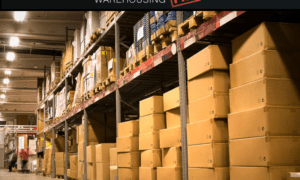Sanctions screening has become an increasingly critical component of global compliance programs, driven by escalating geopolitical instability and a corresponding rise in the complexity and volume of sanctions regulations. As businesses navigate this challenging landscape, embracing advanced technologies and innovative strategies is no longer optional – it’s essential for mitigating risk, ensuring regulatory compliance, and safeguarding organizational reputation. In this article, we delve into the future of sanctions screening, exploring the key trends and innovations that are shaping the industry.
Enhanced Data Quality and Granularity: The Foundation of Effective Screening
The effectiveness of any sanctions screening program hinges on the quality and granularity of the underlying data. Static sanctions lists, while a starting point, are insufficient to address the complexities of modern sanctions regimes, which often target individuals and entities through intricate ownership structures and networks.
We believe that the future of sanctions screening lies in leveraging dynamic data sources that provide real-time updates and enriched information. This includes:
- Direct feeds from sanctioning bodies:Integrating directly with official sources, such as the U.S. Department of the Treasury’s Office of Foreign Assets Control (OFAC), the European Union, and the United Nations, ensures that organizations have access to the most current and accurate sanctions data.
- Adverse media screening:Beyond traditional sanctions lists, screening for adverse media coverage can uncover potential risks associated with individuals or entities that may not be explicitly sanctioned but are involved in activities that could pose reputational or financial risks. We implement sophisticated algorithms that analyze news articles, regulatory filings, and other publicly available information to identify potential red flags.
- Beneficial ownership data:Sanctions often target individuals who control entities through complex ownership structures. We utilize advanced data analytics and network analysis to identify ultimate beneficial owners (UBOs) and assess the risk of indirect sanctions exposure. This goes beyond simple percentage ownership and considers control through nominee shareholders, trusts, and other indirect means.
- Geospatial intelligence:Understanding the geographic location of individuals and entities can be crucial for identifying potential sanctions risks, particularly in regions with a high concentration of sanctioned activity. We integrate geospatial intelligence into our screening process to identify transactions or relationships that may warrant further investigation. Free Sanctions Screening
AI and Machine Learning: Transforming Sanctions Screening
Artificial intelligence (AI) and machine learning (ML) are revolutionizing sanctions screening by automating manual processes, improving accuracy, and reducing false positives. We are at the forefront of this transformation, leveraging AI and ML to:
- Improve fuzzy matching:Traditional rule-based matching systems often generate a high number of false positives due to variations in spelling, transliteration, and formatting. We utilize AI-powered fuzzy matching algorithms that can identify potential matches even with slight variations in names or addresses, significantly reducing the burden on compliance teams. We specifically focus on algorithms trained on a diverse range of linguistic patterns and cultural naming conventions to enhance accuracy across different regions.
- Prioritize alerts:Not all alerts are created equal. We employ ML models to prioritize alerts based on their risk score, allowing compliance teams to focus on the most critical cases first. This risk scoring considers factors such as the strength of the match, the nature of the underlying activity, and the geographic location of the parties involved.
- Detect patterns and anomalies:ML algorithms can identify patterns and anomalies in transaction data that may indicate potential sanctions violations. We utilize unsupervised learning techniques to detect unusual activity that might not be apparent through traditional rule-based screening. This includes analyzing transaction volumes, counterparties, and geographic locations to identify suspicious patterns.
- Automate alert resolution:AI can automate the resolution of simple alerts, such as those resulting from minor spelling variations or outdated information. We develop robotic process automation (RPA) solutions that can automatically update customer records, correct errors, and resolve alerts without human intervention, freeing up compliance teams to focus on more complex investigations.
Real-Time Screening and Continuous Monitoring: Staying Ahead of Emerging Risks
Sanctions regulations are constantly evolving, and organizations must be able to adapt quickly to stay ahead of emerging risks. We advocate for real-time screening and continuous monitoring as essential components of a robust sanctions compliance program.
- Real-time transaction screening:Screening transactions in real-time, before they are processed, allows organizations to identify and prevent potential sanctions violations before they occur. We integrate our screening solutions directly into payment systems and other transaction processing platforms to ensure that all transactions are screened against the latest sanctions lists.
- Continuous customer monitoring:Customer risk profiles can change over time, and organizations must continuously monitor their customer base for new sanctions risks. We implement automated monitoring systems that continuously screen customer data against updated sanctions lists and adverse media reports, triggering alerts when new risks are identified.
- Automated risk assessments:We provide automated risk assessment tools that help organizations identify and assess their sanctions risks based on their business activities, geographic locations, and customer base. These assessments provide a framework for developing and implementing effective sanctions compliance programs.
Collaboration and Information Sharing: Enhancing Collective Intelligence
Combating financial crime requires collaboration and information sharing among organizations and regulatory authorities. We believe that the future of sanctions screening will involve increased collaboration and information sharing to enhance collective intelligence and improve the effectiveness of sanctions enforcement.
- Consortia and industry groups:We actively participate in consortia and industry groups to share best practices and develop common standards for sanctions screening. This collaborative approach helps to raise the bar for compliance across the industry and improve the effectiveness of sanctions enforcement.
- Secure information sharing platforms:We provide secure platforms for organizations to share information about potential sanctions risks with each other and with regulatory authorities. These platforms allow organizations to pool their knowledge and resources to identify and prevent sanctions violations.
- Public-private partnerships:We work closely with regulatory authorities to develop and implement innovative solutions for sanctions screening. These partnerships help to bridge the gap between the public and private sectors and improve the effectiveness of sanctions enforcement.
The Importance of Explainable AI (XAI) in Sanctions Screening
While AI offers significant advantages, it’s crucial to understand why an AI system makes a particular decision. This is where Explainable AI (XAI) becomes vital. We prioritize XAI in our systems to ensure:
- Transparency:Compliance teams need to understand the reasoning behind AI-driven alerts to effectively investigate and resolve them. XAI provides clear explanations of the factors that led to a match, allowing for informed decision-making.
- Auditability:Regulators require transparency into the processes and systems used for sanctions screening. XAI provides the documentation and justification needed to demonstrate compliance.
- Bias Mitigation:By understanding how AI models arrive at their conclusions, we can identify and mitigate potential biases in the data or algorithms, ensuring fairness and accuracy.
Investing in Compliance Training and Expertise: A Human-Centric Approach
While technology plays a crucial role in sanctions screening, it is not a substitute for human expertise. We believe that investing in compliance training and expertise is essential for building a robust sanctions compliance program.
- Comprehensive training programs:We offer comprehensive training programs for compliance professionals on sanctions regulations, screening techniques, and best practices. These programs cover a wide range of topics, including the latest sanctions developments, risk assessment methodologies, and alert resolution procedures.
- Expert advisory services:We provide expert advisory services to help organizations develop and implement effective sanctions compliance programs. Our team of experienced compliance professionals can provide guidance on a wide range of issues, including risk assessment, policy development, and technology implementation.
- Ongoing support and maintenance:We provide ongoing support and maintenance for our screening solutions to ensure that they are always up-to-date and performing optimally. Our team of technical experts is available to answer questions, troubleshoot issues, and provide assistance with system updates and upgrades.
Sanctions Screening Beyond Financial Institutions
While traditionally associated with banks and financial institutions, sanctions screening is now crucial for a broader range of industries. This includes:
- E-commerce:E-commerce platforms must screen both buyers and sellers to prevent sanctioned individuals or entities from using their services. We provide integrated solutions that can screen transactions in real-time and identify potential sanctions violations.
- Shipping and Logistics:Shipping companies and logistics providers must screen shipments and counterparties to ensure that they are not involved in the transport of prohibited goods or the facilitation of sanctions evasion. We offer solutions that can screen shipments against sanctions lists and identify potential risks associated with specific routes or destinations.
- Manufacturing and Trade:Manufacturers and trading companies must screen their suppliers, customers, and distributors to ensure that they are not doing business with sanctioned entities. We provide solutions that can screen these relationships and identify potential risks associated with specific products or geographic regions.
The Future is Proactive: Moving Beyond Reactive Compliance
The ultimate goal of sanctions screening is not just to react to sanctions violations but to proactively prevent them from occurring in the first place. We believe that the future of sanctions screening lies in adopting a proactive, risk-based approach that focuses on identifying and mitigating potential risks before they materialize. This includes:
- Predictive analytics:Using data analytics and machine learning to predict potential sanctions violations based on historical data and emerging trends.
- Scenario planning:Developing and testing scenarios to assess the potential impact of new sanctions regulations or geopolitical events on an organization’s business activities.
- Due diligence:Conducting thorough due diligence on new customers, suppliers, and partners to identify potential sanctions risks.
By embracing these trends and innovations, organizations can strengthen their sanctions compliance programs, mitigate risk, and ensure that they are operating in accordance with the law. We are committed to helping our clients navigate this complex and evolving landscape and build robust sanctions compliance programs that protect their organizations from financial crime.



































